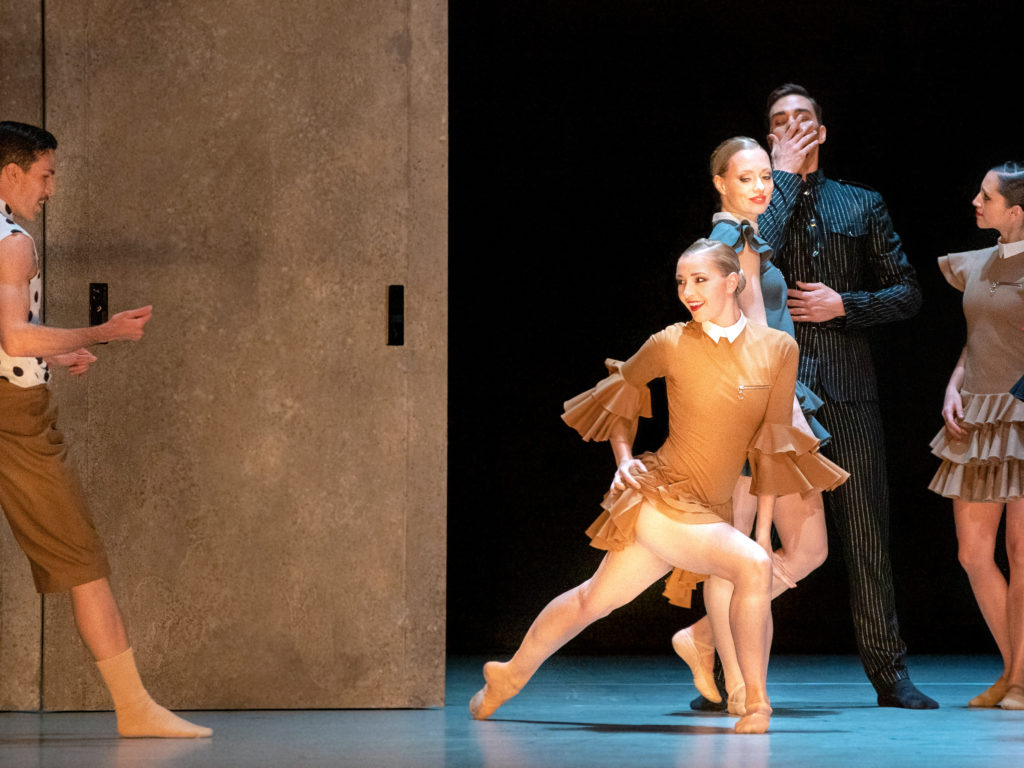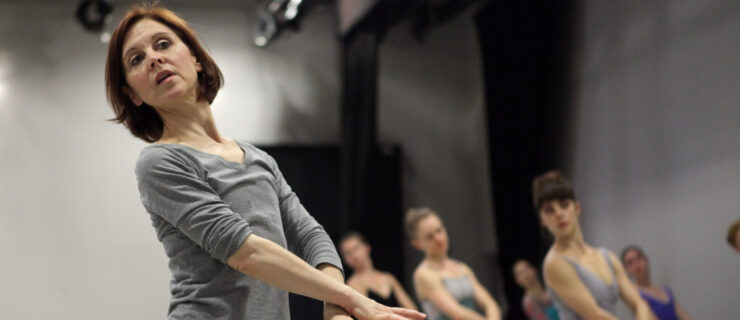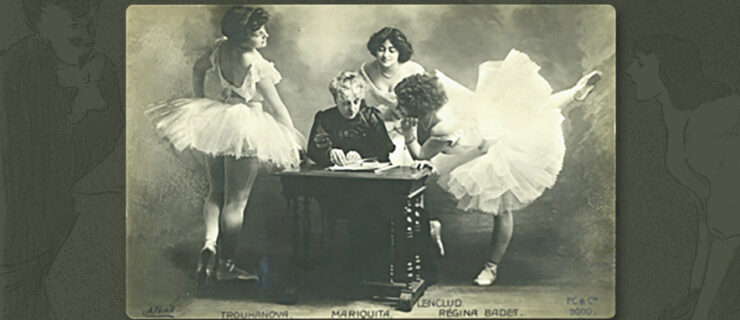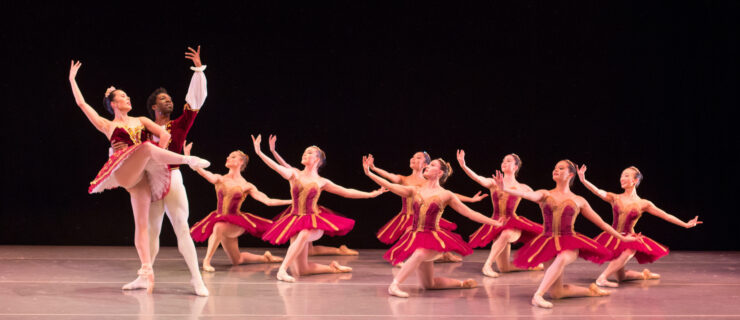Semperoper Dresden Dancer Rebecca Haw on Founding a Classical Ballet Agency
Trained at Elmhurst Ballet School and KS Dance, British dancer Rebecca Haw openly admits that she struggled auditioning for companies. After two years, she secured her first contract at the Romanian National Opera, Bucharest, dancing in the corps before being promoted to first soloist. In 2016, however, her position became unstable. “The foreigners at the company were not so welcome anymore,” she explains, alluding to a period of political upheaval in Romania. “We lost our director, Johan Kobborg, and a lot of dancers left, too.”
Haw initially remained at the company under the new director, but it was clear from the outset it wasn’t going to work out. “I lost most of my roles and was demoted,” Haw says. She cut her losses and moved on midseason, eventually securing a guest contract at Semperoper Dresden that turned into her current permanent position.
Considering Haw’s tumultuous career path, it’s unsurprising that she wants to help other dancers navigate the minefield of securing and maintaining fair employment. Having already launched The Audition Educator—a collection of online courses giving audition guidance to professional dancers—back in 2020, she took things one step further in January of this year by establishing CODA, a pioneering classical ballet agency that Haw believes to be the first of its kind.
Though Haw had been researching ideas around CODA for years, it wasn’t until a lightbulb-moment during lockdown in November 2021 that she pulled an all-night whiteboard session and mapped out a structure and vision for the agency.

Aiming to give classical dancers “the pedestal they deserve,” CODA strives to bridge the gap between performers and companies, abating frustrations on both sides. “Generally speaking, dancers don’t know how to converse with companies in a professional manner. I get it; I’ve been there,” says Haw. “We encourage our dancers to let us handle communications, especially when it comes to finances and working hours.”
CODA currently represents 17 dancers from various ranks—including Houston Ballet principal Skylar Campbell and former San Francisco Ballet soloist Madison Keesler—as well as some freelancers. To date, CODA has secured its signees a range of freelance gala and festival performances, as well as one significant short-term contract.
The agency also supports some corps members, but Haw believes that the best way CODA can help them is by aiding companies’ recruitment processes. “Obviously, final decisions will always lie with directors, but we want to help them by prescreening the thousands of applications they receive, and ensuring that they get selections of dancers that are right for them and vice versa,” she says. “This will also prevent dancers from wasting time and money going to auditions they’re not right for.”
Although Haw initially thought directors would be resistant to relinquishing some control over recruitment, she has already secured a deal to handle prescreening for a major company next season. “I never thought that this would happen,” says Haw. “This was the end goal of our five-year plan.”

By recruiting for companies, Haw may be able to help overturn some of the implicit prejudices in the classical ballet world that stop dancers from succeeding. “The issues in classical ballet are vast. That’s why I wanted to start CODA while I was still performing—you hear way more when you’re in than when you’re out.” Simple measures CODA has already taken to mitigate bias in its own operations include not categorizing dancers based on gender, and not publishing details of their weights. “We assess all dancers based on their ability, artistic quality, potential and suitability for positions rather than any other ‘tick-box’ categories. We want to impart that approach to the companies we end up working with,” says Haw. “I’m also seeking education and self-study from various resources. Dance Data Project has been a great one.”
Running CODA while performing with Semperoper may seem like a tall task, but Haw says she has “always worked alongside working.” She also manages a digital marketing agency she founded five years ago. At age 20, she began offering freelance digital marketing services to pay for her pointe shoes while working at the Romanian National Opera. “For that, I would take on more work during the summer and scale it back if I were doing Swan Lake, for example.”
CODA, however, has been less easy to control, due to its newness. “It was a shock to the system how quickly things exploded,” she says. “Within hours of launching, we had soloists and principals from all over the world sending in their CVs. I had to hire an extra assistant after one week.”
Now, CODA has a team of two online assistants, two classical ballet experts to help vary preselections and run new ideas and processes by, and a social media community manager. “I also utilize the tools of today, such as AI copywriters or appointment-booking systems, so I can give what I don’t need or like to do to machines or other people,” says Haw.
The team will need to grow to accommodate Haw’s ambitious plans, from setting up press teams to expanding CODA’s representation to include choreographers, guest teachers, ballet masters, and even pianists and conductors. “We have sourced one of the finest applicant-tracking systems and adapted its features to suit company directors’—and other employers’—needs, allowing CODA to take on much larger quantities of applicants seeking employ,” she says. “Anything the classical world comes into contact with, we’ll cover it.”






